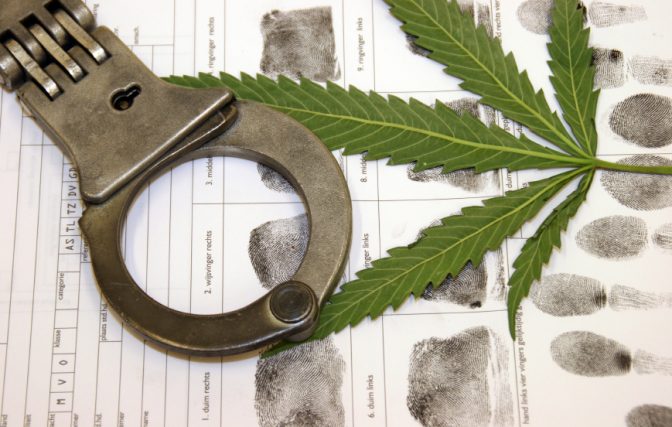Why Cannabis Arrest Rates Are Falling

Arrests for marijuana possession are at their lowest level since 1996, according to data compiled by the FBI. In 2015, 574,641 people were arrested for cannabis possession, down from a peak arrest rate of 853,638 in 2010.
The decline from 2014, when 700,993 arrest were made, to 2015 is a whopping 18%.
Still, someone is getting arrested for possessing cannabis about every minute in the U.S. “While the numbers are thankfully dropping over time, it’s alarming and simply unacceptable that someone is harassed by the police just for marijuana every 49 seconds in this country,” said Tom Angell, chairman of Marijuana Majority, tells Freedom Leaf.
So what’s behind this reduction? A wave of legalization has swept the country in recent years—four states have legalized adult-use and more than half of all states have some form of legal medical cannabis. This “has started to shrink the pool of eligible cannabis consumers, producers and sellers to arrest,” observes Allen St. Pierre, former Executive Director of NORML and Vice President of Freedom Leaf. “In states like Colorado and Washington, and in D.C., there has been an approximate 90% reduction in annual cannabis arrests post-voter reforms.”
When NORML was founded in 1970, about 12% of the American public supported legalization. Now, national polls consistently find at least half the population backing the pot issue. “Even police have to go along with this kind of massive societal change,” St. Pierre adds. “The baby boomers and Gen Xers who manage law enforcement today do not consider cannabis a ‘hard drug’ in the same way they do cocaine, heroin, meth, crack and crack.”
A report out of Colorado, the first U.S. state with a legal cannabis market, found unsettling racial disparities in arrest rates post-legalization. While arrests of white adolescents decreased 8% in the two years following legalization, arrests of young people of color increased by 58% for black juveniles and 29% for Latino juveniles. “Despite reduction in cannabis-related arrests, notably where legalization has occurred, there is still great racial disparity in arrests,» St. Pierre concedes.
“Our movement is set to more than double the number of states with legalization in November,” Angell reminds. “We won’t stop pushing until the day when no one is put into handcuffs or cages just because they choose to consume cannabis.”
If you enjoyed this Freedom Leaf article, consider subscribing today!

